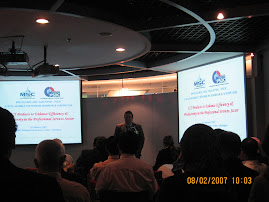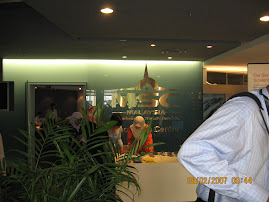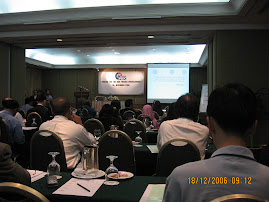Important Considerations for Buyers of Malaysian “Homes”:
1. Check Whether The “Home” Is Sited On Residential or Commercial Land:
Is it sited on residential or commercial land? The former – known as “housing accommodation” - enjoys specific protections and safeguards under the Housing Development (Control & Licensing) Act (HDA) & Housing Development Regulations (HDR); Whereas the latter (e.g. serviced apartments, condotel, resort apartments and the likes) do not – instead, they are governed by, among others, the Contracts Act and other Malaysian law.
2. Check On The Developer:
A Malaysian home which is a “housing accommodation” under the HDA & HDR can only be legally developed and offered for sale by a developer with:
· A valid housing development licence;
· A valid advertisement licence for the housing development;
· A valid sales permit.
Obviously, you should also check on the developer’s track record in terms of:
· completion ability;
· delivery of quality;
· past customers’ experience.
3. Check: A “Landed Home” or “Strata Home”?
A “housing accommodation” under the HDA can be a “landed home” (such as bungalows, semi-detached houses and terrace houses) or a “strata home” (such as condominiums, flats, apartments and townhouses).
HDR Reg. 11(1) imposes different standard Sale & Purchase Agreements and different periods of completion for a “landed home” as opposed to a “strata home”:
· For “landed homes” - the legally expected date of completion is 24 months from the date of signing of the Sales and Purchase Agreement (SPA) as per Schedule G of HDR 1989; whereas,
· For “strata homes” - the expected date of completion is 36 months from the date of signing of the SPA (as per Schedule H of HDR 1989).
HDR Reg. 11(4) further states that the Purchaser’s solicitor is “entitled to a complete set of the contract of sale including…free of charge subject to the undertaking…to return…in the event…not executed by the purchaser within fourteen (14) days from the date of receipt…”
The rights of buyers must be understood as contained in the Sales and Purchase Agreement as in either schedules G or H of the Housing Development (Control and Licensing) Regulation 1989, whichever is applicable – please refer above
1. The Housing Development’s Licence number and the expiry date;
2. The Advertisement and Sales permit numbers and the expiry dates;
3. Name and address of:
· The licensed housing developer;
· The authorized agents (if any);
· The holders of power of attorney (if any);
· The project management company (if any);
4. Land details: tenure – freehold or leasehold expiring when? Land mortgaged to bank?
5. Development Description:
· Location;
· Building material specification;
· Size of the property;
· services/amenities.
6. Name of Housing Project (if any);
7. Expected Date of Completion;
8. Price of each type of home;
9. Number of units for each type;
10. Reference number of the approved building plan and the name of the local approving authority
5. First Payment 10% - No Payment Allowed Before Signing SPA.
The first payment of 10 per cent must be made upon signing of the Sales and Purchase Agreement. Please ensure the date of signing of the SPA and the date of first payment are the same.
HDR Reg 11(4) further states that the Purchaser’s solicitor is “entitled to a complete set of the contract of sale including…free of charge subject to the undertaking…to return…in the event…not executed by the purchaser within fourteen (14) days from date of receipt…”
7. Interest on Late Payment
A buyer (or whose end financier) who fails to pay the developer the progressive payment/installment within 21 working days from the date of the written notice of payment from the developer can, under the standard SPA, be charged an interest of 10 per cent per annum on the installment in arrear.
8. Termination of the Sales and Purchase Agreement
Any such failure to make the progressive payment or interest charged on late payment for a period of more than 28 days can give the developer the right to terminate the Sales and Purchase Agreement. The developer must serve the notice in writing by AR registered post of its intention to terminate the SPA.
9. Infrastructural Maintenance Fee
Buyers must pay the cost of maintaining the infrastructure from the date of vacant possession till the date the responsibility is taken over by the local authority or management corporation (in the case of a subdivided building).
Infrastructure is defined as:
a) For land and building - Road, driveway, drains, sewerage, pipelines and sewerage tank for the housing development;
b)For subdivided building - Road, driveway, drains, sewerage, pipelines and sewerage tank for the building.
10. Maintenance and Management Fee
From the date of vacant possession the buyer shall be responsible for paying for services such as:-
11. For land and building
i.) Refuse removal, upkeep of drains and grass-cutting on the road reserves;
12. For subdivided building
13. Sinking fund
For subdivided building onlyThe buyer shall upon the date he takes vacant possession of the said parcel contribute to the sinking fund an amount equivalent to 10 per cent of the service charges. The buyer shall pay one (1) month’s deposit and three (3) months’ advance in respect of the service charges to the sinking fund and any payment thereafter shall be payable on a monthly advance.
14. Payment of Quit Rent, Rate Assessment, etc
From the date of vacant possession or date of assignment, whichever is earlier, the buyer is responsible for the quit rent, assessment, rate payment and other charges relating to the property bought.
15. Vacant Possession
Vacant possession on the building complete with water and electricity connection must be handed over within 24 calendar months from the date of signing of the SPA for landed property and 36 calendar months for subdivided building.Regulation and Rights of House Buyers during the Handing over of Vacant Possession.
Ensure the property is free from any encumbrances before accepting notice of vacant possession.If the developer leases the land or the property, the developer must settle the balance payment before handing over vacant possession.
Conditions that must be followed by housing developers:-
1.) Certificate from the developer’s architect stating thata.) the building is completedb.) water and electricity are ready for connection
2.) The developer has applied for:
a.) the issue of the Certificate of Fitness for Occupation (CFO) through Form E *
b.) the local authority has issued a notice stating that Form E has been checked and accepted by the relevant authority.
(* Form E is an application from the developer’s architect to the relevant authority for the issue of the CFO.)
The buyer is entitled to enter into occupation of the property only upon issue of the CFO by the relevant authority and renovation may be carried out only upon issue of the CFO and approval of the plan by the relevant authority. While inspecting the building, any defect is recorded and handed over to the developer to be rectified. Make sure you obtain a copy of the report. The buyer is entitled to claim for late delivery from the developer.
16. Damages
If the developer fails to deliver vacant possession of the building as stipulated by the SPA, it must pay damages calculated on a daily rest, 10 per cent per annum of the purchase price.
17. Defect liability period
The defect liability period is 18 months after the date of vacant possession. Creation of Management Corporation for Subdivided BuildingA management corporation will be created once the strata title of each individual parcel is issued to the owners. Other functions of the management corporation include insuring and maintaining the building.
18. Enquiries and complaints
You may contact:
Monitoring and Enforcement Division
Ministry of Housing and Local Government
Level 3, Block B North, Pusat Bandar Damansara
50782 KUALA LUMPUR
Tel : 03-2094 7033Fax: 03- 2092 5049
This is a division under the Ministry of Housing and Local Government and it is responsible for the implementation and enforcement of the provisions of the Housing Developers (Control and Licensing) Act (Act 118).
Forward your complaints to the above division. Or e-mail its enforcement officers at enforcement@kpkt.gov.my, giving your full name, IC no, developer’s name, name of housing project, etc. and the gist of your complaint.
Douglas.
(Acknowledgments & Disclaimer:
The above summary is adapted mainly from information publicly available at the Official website of the Malaysian Ministry Of Housing & Local Goivernment. While every effort and care is taken to ensure accuracy, reliance on it wholly or partly is solely at the discretion and risks of the readers. The writer does not, cannot and will not give warranty of any kind whatsoever for the above summary which is given free and in good faith.)






